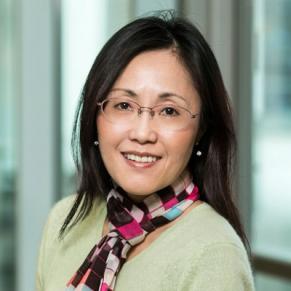
Program Summary
This Young Scholars Research Program is designed for high school and biomed undergrad students, who are interested in doing biology, medicine, biostatistics/informatics, mathematical modeling and big-data analytics research with university faculties. In particular, we aim to work collaboratively on the intersection of biomedicine and artificial intelligence (AI) to generate policy recommendations. We aim that some of these research projects will be supported by extramural research grants from top research funding agencies such as National Institutes of Health (NIH) and National Science Foundation (NSF), as well as other private and public sources including foundations, industry partners and other governmental agencies.
During this program, students will be participating in a research project applying some of the following methods, including but not limited to:
- Biostatistics
- System dynamics modeling
- Network Analysis
- Discrete event simulation
- Markov modeling
Program Goals
- Introduce students to higher education biolab and medical research practice
- Support student career paths by providing hands-on research experience
- Expand student knowledge on a variety of research tools and applications that are used in research in the biomedical context
About the Instructors
Dr. Jim Olds is University Professor of Neuroscience and Public Policy at George Mason University. He served from 2014-2018 as head of the Biological Sciences Directorate at the U.S. National Science Foundation (NSF), responsible for an annual budget of $750M. Olds’ former directorate funds the majority of non-biomedical research at America’s research institutions. While there, he was also NSF lead for President Obama’s White House BRAIN project, deputy lead for NSF on Vice President Biden’s Cancer Moonshot and co-chaired the White House Life Sciences Subcommittee of the National Science and Technology Council.

Olds also holds the position of Adjunct Professor in the Department of Anatomy, Physiology and Genetics at the Uniformed Services University of the Health Sciences. Prior to his time at NSF, Olds was the Director of George Mason University’s Krasnow Institute for Advanced Study, Chair of the Molecular Neuroscience Department and the Shelley Krasnow University Professor of Molecular Neuroscience. Olds received his Ph.D. in neuroscience from the University of Michigan and his BA in chemistry from Amherst College.
Dr. Naoru Koizumi is Professor of Public Policy and Associate Dean of Research & Grants in the Schar School of Policy and Government at George Mason University. She specializes in medical policies, particularly in the fields of organ transplantation and the end-stage kidney and liver diseases. Her research focuses on the applications of various quantitative methods such as biostatistics, Geographic Information Systems (GIS), simulation and mathematical optimization to analyze various clinical and policy questions related to organ transplantation and other chronic disease treatments. Her projects funded by NIH and NSF include simulations and optimizations of organ allocation (NIH-R21) and bed allocation in a mental health system (NIH-R21 & R01), simulation of slum expansion in India (NSF) and mathematical analysis of illicit kidney trade networks (NSF). Her grant from the Bill & Melinda Gates Foundation investigated effectiveness of ICT-based interventions designed to enhance medication adherence among Tuberculosis patients in India.

Professor Koizumi completed her first doctoral program in Regional Science from the University of Pennsylvania in 2002. The extension of her doctoral research was funded by National Institutes of Health. Her second PhD (2005) is in Environmental and Preventive Medicine from Hyogo College of Medicine, Japan. Before joining the Schar School of Policy and Government, Professor Koizumi was a post-doctoral researcher at the Electrical and Systems Engineering Department of the University of Pennsylvania where she worked on various health sector projects in collaboration with the School of Medicine. Outside academia, Professor Koizumi worked for several international development agencies (IDB and EBRD) and in private consulting, participating primarily in social and environmental sector projects in Latin America and East Europe.


